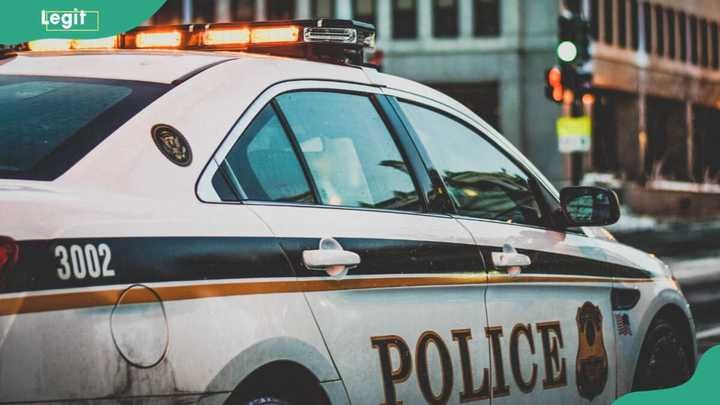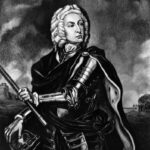The police force, a cornerstone of modern society, has its roots stretching back to the early 19th century with the establishment of organized law enforcement in the UK. Over time, various slang terms have emerged to refer to police officers, and one particularly intriguing example is “12.” But why are police called 12? This term, especially prevalent in certain regions of the United States, carries a unique story.
Decoding “12”: What Does It Mean?
“12” is primarily a slang term for police officers, notably used in areas like Atlanta, Georgia, and within the broader Southern United States. The term’s usage is nuanced. For some, it might carry negative connotations, acting as a dismissive or insulting label. Others employ it more neutrally, and in some contexts, it might even be used informally or humorously among certain groups. Understanding the context is key to interpreting the intent behind using “12.”
Unraveling the Mystery: The Origins of “12” for Police
While the exact origins of “12” as a police slang term remain somewhat debated, several compelling theories attempt to explain its rise to popularity.
One prominent theory links “12” to police radio codes, specifically the “ten-code” system used by law enforcement agencies. In this system, “10-12” traditionally means “visitors present” or “stand by.” Some speculate that the association with “stand by” or “wait” in the presence of police could have led to the shorthand “12” becoming a discreet way to refer to law enforcement presence. This theory suggests the slang emerged as a way to quickly and subtly alert others to the nearby presence of cops, particularly in situations where individuals might be engaged in activities they wished to keep hidden from the police. The use of ten-codes became widespread in the mid-20th century, aligning with the timeline of when “12” started gaining traction as slang.
Another, more controversial, theory connects “12” to the acronym ACAB, which stands for “All Cops Are Bastards.” In this interpretation, ACAB is sometimes numerically represented as “1312,” where 1 corresponds to the first letter A, 3 to C, and 2 to B in the alphabet. Proponents of this theory suggest that “1312” was further shortened to simply “12” as a quicker, less explicit way to invoke the anti-police sentiment associated with ACAB. While this theory exists, it’s important to note that its direct link to the slang term “12” is less definitively proven than the radio code theory and is often considered a more aggressive and less widespread interpretation of the slang’s origin.
A more pop-culture-centric theory points to the popular police television show Adam-12. This show, which aired from 1968 to 1975, followed the daily routines of two Los Angeles Police Department officers in their patrol unit, designated “1-Adam-12.” The show was highly influential in portraying police work to the public and became a cultural touchstone. It’s suggested that the widespread popularity of Adam-12 might have led to the unit number “12” becoming generically associated with police, eventually evolving into the slang term we know today. This theory is similar to how the term “5-0” (or “five-oh”) became slang for police, stemming from another iconic police TV show, Hawaii Five-O.
Why Use “12” to Refer to Cops?
Regardless of the precise origin, the reasons for using “12” as slang for police are fairly clear:
- Warning and Alert: Primarily, “12” serves as a discreet way to warn others about the presence of law enforcement. This can be crucial in situations where individuals want to avoid police contact, whether they are engaged in illicit activities or simply wish to remain unnoticed.
- Pop Culture Influence: The term has been further popularized through music, movies, and other forms of pop culture, embedding it into common slang, particularly within certain subcultures and communities. For example, the reference in the 1995 film Friday highlights its integration into popular vernacular.
Timeline: When Did “12” Become Police Slang?
The late 1960s and early 1970s appear to be the period when “12” started gaining traction as a slang term for police. This timeframe aligns with both the popularity of Adam-12 and the established use of police radio ten-codes, lending credence to both of those origin theories. From its emergence, the term quickly spread, becoming embedded in slang and popular culture, where it continues to be used today.
Frequently Asked Questions
-
Where does the word “police” come from? The word “police” is derived from the Greek word “politeia,” meaning “citizenship” or “government.”
-
What is the origin of professional policing? Modern professional policing originated in the United Kingdom in the early 19th century.
-
What was the first professional police force called? The Metropolitan Police, established in London in 1829, is considered the first modern professional police force.
-
Is using “12” disrespectful to police? The perception of “12” varies. While some may view it negatively, it’s not inherently disrespectful. Context and intent are crucial in interpreting its use. In many cases, it’s used simply as informal slang, devoid of strong negative connotations.
-
Why are police called “12”? “12” is used as slang to discreetly alert others to the presence of police, often as a warning.
-
When did “12” start being used for police? The term gained popularity in the late 1960s and early 1970s.
Conclusion: The Enduring Slang of “12”
The term “12” remains a prevalent piece of slang for police, particularly in certain regions and communities. Whether it originated from police radio codes, the numerical representation of ACAB, or the influence of Adam-12, the term’s function as a warning and its entrenchment in popular culture are undeniable. Understanding the potential origins and nuances of “12” provides a glimpse into the evolving language surrounding law enforcement and the dynamic relationship between the police and the communities they serve.

